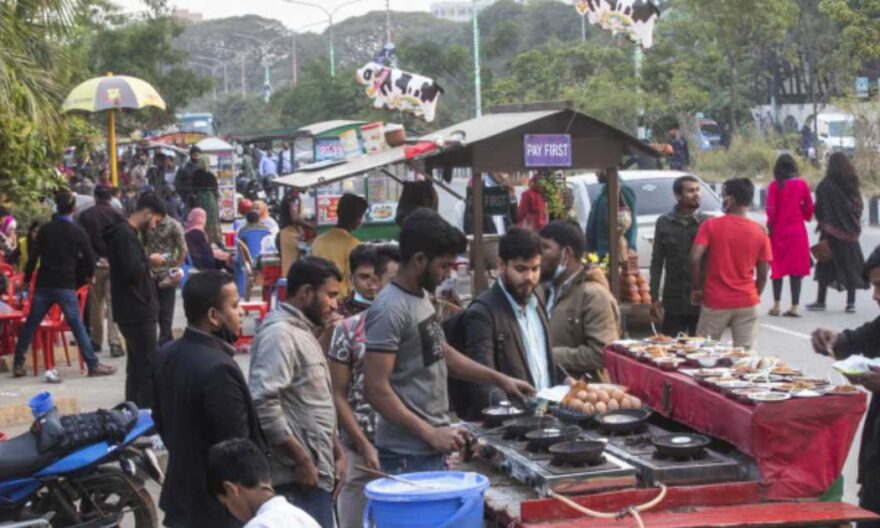
A recent study has found that popular street foods in Dhaka, including chotpoti, chola-muri, sandwiches, sugarcane juice, aloe vera juice, and mixed salad, are contaminated with harmful bacteria.
The findings were presented at a seminar on Sunday at the Bangladesh Food Safety Authority (BFSA) conference room. Researchers identified the presence of E. coli, Salmonella, and Vibrio bacteria in these widely consumed street foods.
Latiful Bari, head of the Food Nutrition and Agriculture Research Laboratory at the University of Dhaka, presented the alarming results.
The study revealed significant bacterial contamination levels. Each plate of chotpoti contained an average of 72 million E. coli, 750 Salmonella, and 750 Vibrio bacteria. Chola-muri had 740,000 E. coli, 2,000 Salmonella, and 3 million Vibrio bacteria. Sandwiches were found to contain 2,000 E. coli, 2,000 Salmonella, and 1.6 million Vibrio bacteria. Sugarcane juice showed 65,000 E. coli, 17,000 Salmonella, and 13,000 Vibrio bacteria. Aloe vera juice contained 56,000 E. coli, 1.8 million Salmonella, and 14,000 Vibrio bacteria. Mixed salad had 1,800 E. coli, 510 Salmonella, and 300 Vibrio bacteria.
These bacteria are known to cause various stomach diseases, including diarrhea. The study indicated that out of every 10,000 people consuming these street foods, two become ill from E. coli, four from Salmonella, and one from Vibrio bacteria.
Researchers collected 450 samples from street food vendors across 37 regions in Dhaka North and South City Corporations. The contamination was attributed to factors such as contaminated water, dirty towels, unclean hands, and dusty environments.
Latiful Bari highlighted the lack of health and sanitation knowledge among street food vendors as a significant issue. He stressed the need for training vendors and implementing daily monitoring to ensure food safety.


















